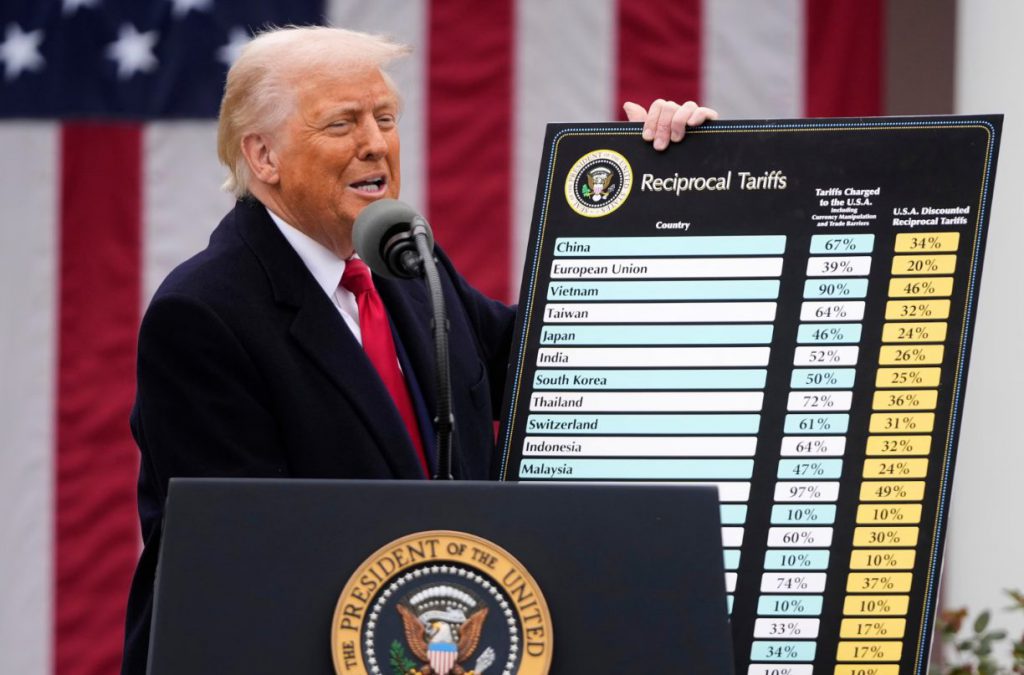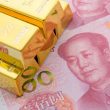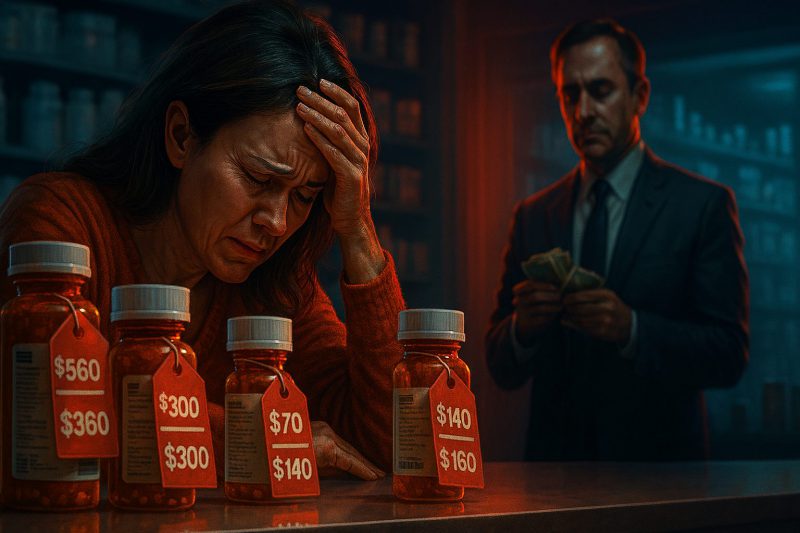Trump’s 100% drug tariff proposal targets imported medications, but economic experts are warning that American consumers will actually end up paying the price, not the foreign pharmaceutical companies. The pharmaceutical tariffs would double the cost of branded drugs, and with no real competition in the patent-protected market right now, US buyers absorb these increases directly.
How Trump’s 100% Drug Tariff Affects U.S. Consumers and Pharmaceutical Companies


Who Really Pays for Drug Tariffs
The drug pricing impact of Trump’s 100% drug tariff is going to fall on American patients and insurers, according to economist Justin Wolfers. The US drug import tariffs don’t actually pressure foreign manufacturers to lower their prices—they simply add costs that get passed along to consumers.
Justin Wolfers stated:
“The Administration’s theory: Foreign drug companies will cut prices if Americans can buy elsewhere. The flaw: For patented drugs, there’s no competition and demand is inelastic. That’s the textbook case where buyers—American patients and insurers—eat the cost.”
At the time of writing, this analysis points out that pharmaceutical tariffs work differently than tariffs on other goods. With branded medications, there’s no way around the monopoly that patents create.
Also Read: Fed Governor: “No Evidence” Tariffs Have Caused Inflation to Rise
The Reality of Branded Drug Tariffs

Pharmaceutical ETFs are showing mixed results right now, with some funds posting gains while others are facing declines. The sector remains pretty volatile as Trump’s 100% drug tariff discussions continue and investors try to figure out what it all means.
With patents, there is a basic issue with branded drug tariffs: patents make monopolies, end and be all. Pharmaceutical tariffs become inevitable taxes the patients must pay when they require special medications. Individuals with chronic conditions are particularly affected by the drug pricing effect, since they are unable to just drop purchasing the drugs they require.


US drug import tariffs would force many Americans to actually choose between affording their medications or covering other essential expenses. Branded drug tariffs don’t work like tariffs on competitive goods—there’s no alternative supplier to switch to, and patients can’t just reduce their demand either.
Also Read: Trump Targets China With 100% Tariffs on Russian Oil, BRICS in Focus
The Trump’s 100% drug tariff plan assumes that foreign companies will come to the table and negotiate, but pharmaceutical tariffs in patent-protected markets simply raise costs for Americans who need these medications. Even insurers who might absorb some initial costs will eventually pass those expenses on through higher premiums.





